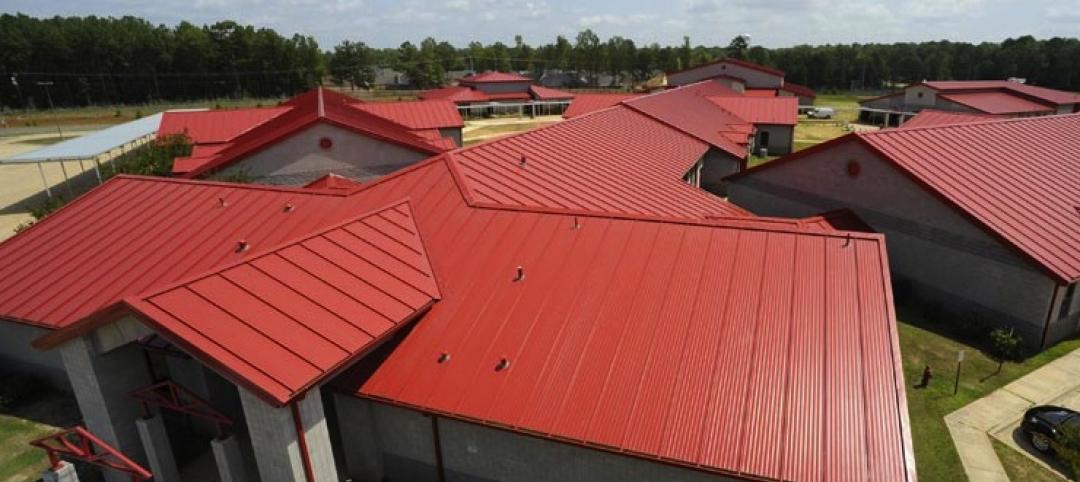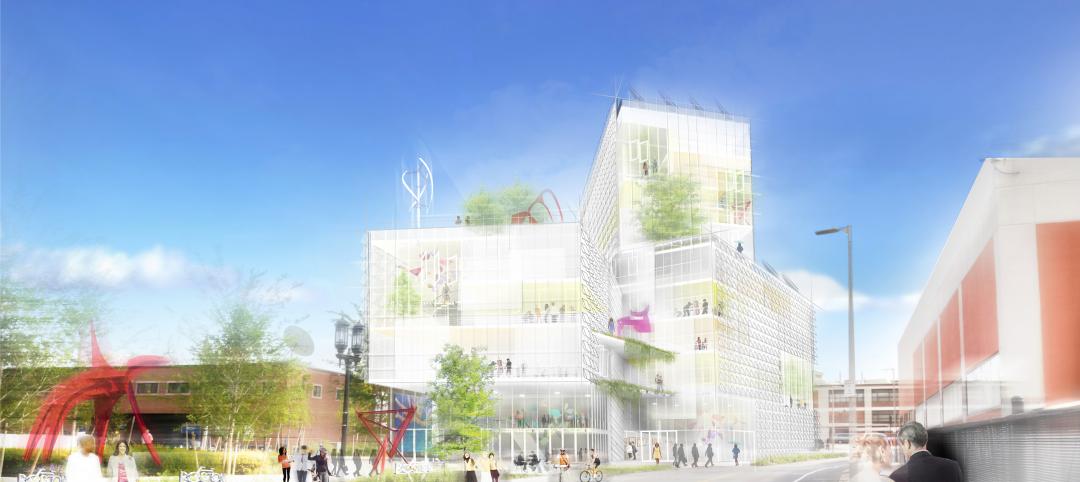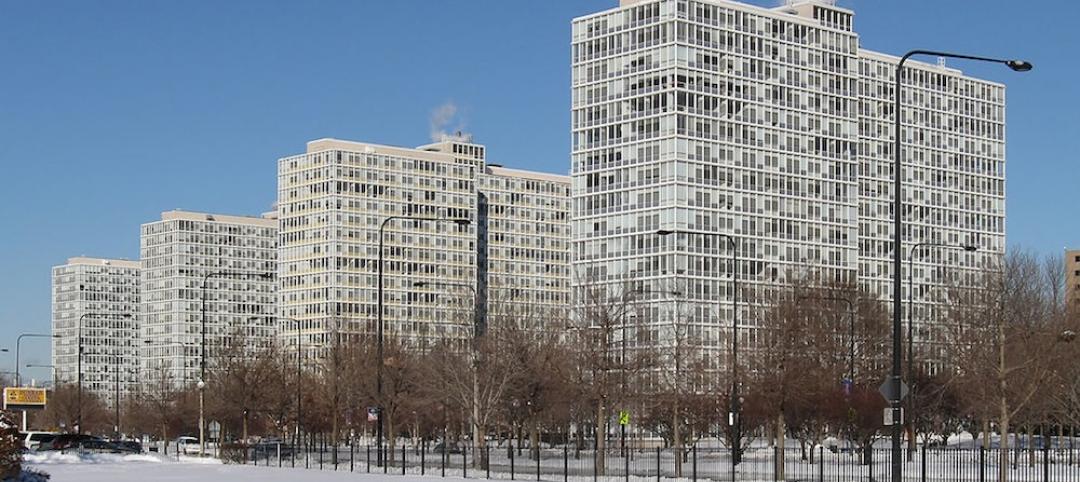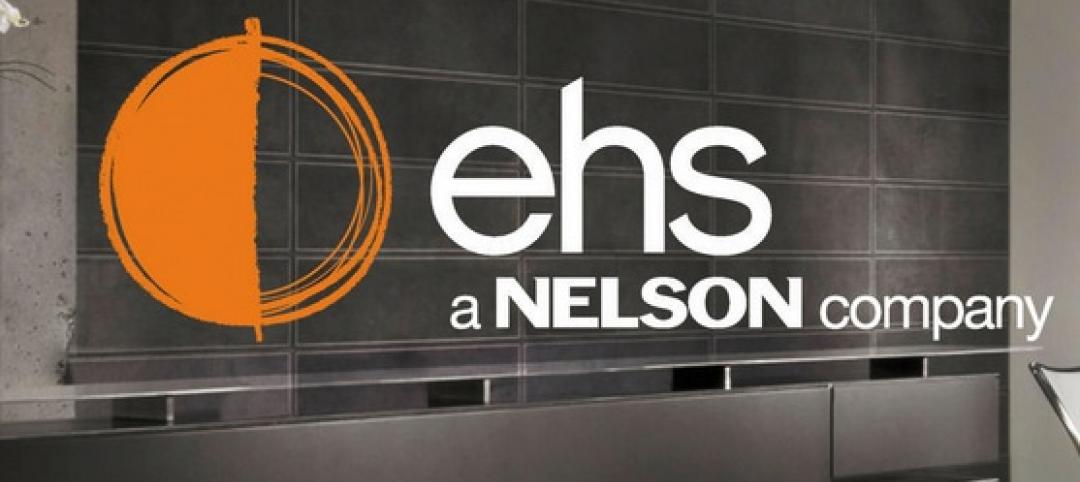In the latest chapter of the industry’s ongoing consolidation saga, two of the top 50 architecture/engineering firms, DLR Group and Westlake Reed Leskosky (WRL), are joining forces, bringing together companies with 1,000 employees in 26 locations worldwide.
This is the second addition to its stable in the last 14 months for Omaha, Neb.-based DLR. In July 2015, it acquired SORG Architects, which works primarily in the Washington D.C. area, and will now operate as DLR Group|Sorg|Westlake Reed Leskosky.
The 112-year-old WRL, founded by the youngest son of U.S. President James Garfield, will extend DLR’s presence into such eastern metros as Cleveland (WRL’s headquarters city), New York, and Charlotte. “Strategically, this increases the geographic reach of both firms,” said Griff Davenport, chief executive of DLR, which turns 50 this year.
Paul Westlake, FAIA, FACHA, WRL’s Managing Principal, added that there is little overlap of practice type specialization or clientele between the two firms, and that he sees “lots of opportunities” for DLR to fatten its nine practices on these new markets. Right before the deal was announced, Westlake informed a university president about the merger, “and he said that the university had three projects on the horizon that fit DLR’s specialties.”
Westlake considered DLR’s K-12 practice to be “the best in the country,” whereas Davenport singled out WRL’s Cultural and Performing Arts practice, a sector where the two firms had worked together on projects previously.
Other practices for the combined firm include Energy Services, Hospitality, Healthcare, Justice, Preservation, Retail, Mixed-Use, Sports, and Office.
As a Senior Principal of the combined company, Westlake will lead its Culture and Performing Arts Studio, and become a member of DLR Group’s board of directors. He told BD+C that he felt this change would return him to his roots as a designer, as well as take full advantage of his experience growing a company. (Westlake opened WRL’s second office, and several others subsequently.)
The merger also provides “ownership” opportunities to WRL’s employees, as DLR is 100% employee-owned, said Davenport.
He and Westlake said the two firms have recognized each other as industry “leaders” for a while. About a year ago, they started talking about working together in some capacity, which evolved into more substantive discussions about merging.
“As we went to through the process it became readily apparent that within our firms is a clear cultural alignment,” said Davenport. Westlake said that the eight or nine people with equity positions at WRL were “excited” about a merger. And a month before the deal consummated, the two companies brought together their respective team leaders in what Davenport called “a cultural exchange,” which turned out better than expected. “There was chemistry beyond just business.”
Several of WRL’s executives assume key management roles in the transition. Phil LaBassi, FAIA, FACHA, a Principal and owner at WRL, will become Global Healthcare Leader and direct that practice for the combined firm. Matt Janiak, AIA, will lead the operations in the Cleveland and New York offices. Paul Siemborski, AIA, will lead business developing and marketing for the Northeast Region. And Glenn Johnson will direct the DLR Group|Westlake Reed Leskosky office in Charlotte.
Tom Gallagher, AIA, who was made an owner at WRL in February, will continue to direct the DLR Group|Westlake Reed Leskosky New York office and lead a studio specializing in lighting and museum design. Gallagher will also lead projects in Asia.
Davenport said his company is keeping its eyes open for new growth avenues that might include acquisitions, which “will continue to be a strategy we consider. Every so often, a firm like WRL comes along.”
Related Stories
Sponsored | | Nov 26, 2014
What’s in a coating?
A beautiful coating on metal products can make a strong statement, whether used on a high-end commercial project or an industrial building. SPONSORED CONTENT
Sponsored | | Nov 26, 2014
Virtual reality in 3D models, iPhone thermal imaging: Inside one very cool tech toybox
A little over a year ago, I embarked on a search to find individuals in the AEC space who were putting new hardware to work in the field.
| Nov 25, 2014
Behnisch Architekten unveils design for energy-positive building in Boston
The multi-use building for Artists For Humanity that is slated to be the largest energy positive commercial building in New England.
| Nov 25, 2014
Study: 85% of employees dissatisfied with their office environment
A vast majority of office workers feel open floor plans cause multiple distractions and that more private spaces are needed in today's offices, according to a new study by Steelcase and research firm IPSOS.
| Nov 25, 2014
Emerging design and operation strategies for the ambulatory team in transition
As healthcare systems shift their care models to be more responsive to patient-centered care, ambulatory care teams need to be positioned to operate efficiently in their everyday work environments, write CannonDesign Health Practice leaders Tonia Burnette and Mike Pukszta.
| Nov 24, 2014
Midsize construction firms see a brighter business horizon
Uncertainty about government spending clouds an otherwise positive economic outlook among 59 middle market construction firms polled recently by GE Capital.
| Nov 24, 2014
Adrian Smith + Gordon Gill-designed crystalline tower breaks ground in southwestern China
Fitted with an LED façade, the 468-meter Greenland Tower Chengdu will act as a light sculpture for the city of Chengdu.
| Nov 21, 2014
Rental apartment construction soars to 27-year high: WSJ report
The multifamily sector is now outpacing the peak construction rate in the previous housing cycle, in 2006, according to the WSJ.
| Nov 21, 2014
Nelson adds to its stable with EHS Design acquisition
This represents Nelson’s fifth merger or acquisition in 2014, during which the firm’s net fee revenue has increased by 60% to $65 million.
| Nov 21, 2014
Nonresidential Construction Index rises in fourth quarter
There are a number of reasons for optimism among respondents of FMI's quarterly Nonresidential Construction Index survey, including healthier backlogs and low inflation.
















